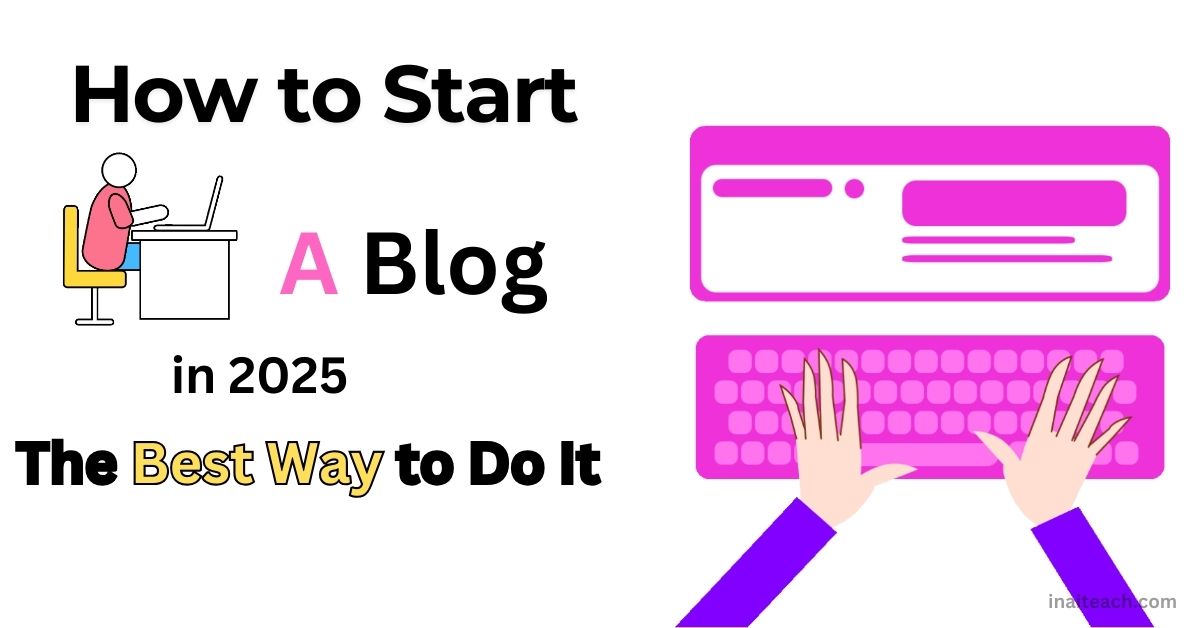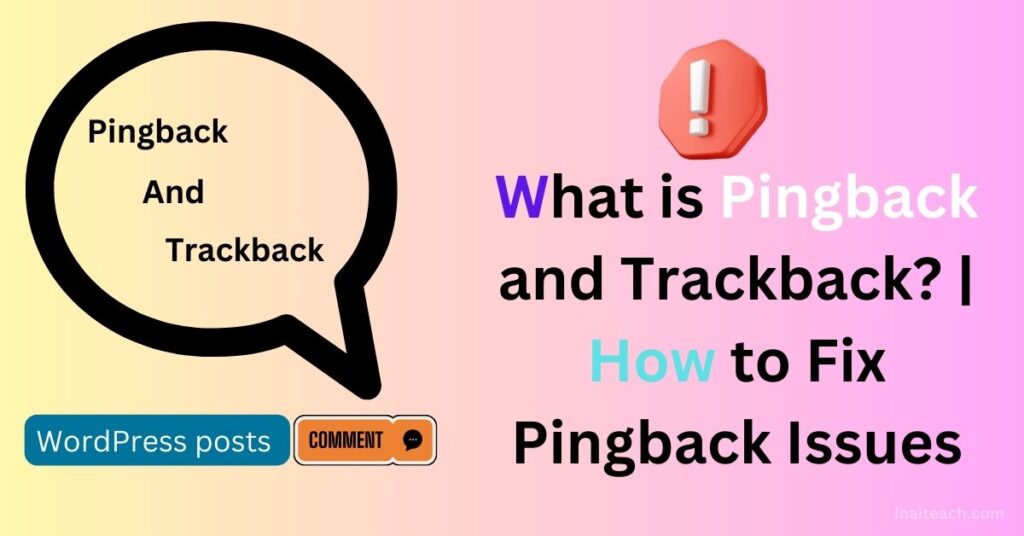
Introduction
How to Start a Blog in 2025: The Best Way to Do It So, you’re getting into blogging? Good idea! It’s one of the enjoyable and flexible ways of expressing thoughts, sharing interactions with others, and even making a living. Whatever you’re interested in, be it travel, food, technology, or anything in between, blogging can help you find your way into the vibrant world of the digital domain. And hey-now’s the best time to start!
How to Start a Blog in 2025: The Best Way to Do It
What is a Blog and How to Start a Blog in 2025: The Best Way to Do It
What a Blog Is
A blog is essentially a site that you publish content on regularly, in a conversational or informal style. The blog provides a space on the Internet where you may communicate what you think, know, and say about things.
How to Start a Blog in 2025 and how Many Types of Blogs
Blogs come in all shapes and sizes, including:
- Personal blogs
- Niche-specific blogs (e.g., food, travel, tech)
- Business blogs
- Professional or portfolio blogs
Benefits of Blogging
Personal and Professional Benefits in Blogging

How to Start a Blog in 2025: The Best Way to Do It allows you to:
- Express yourself creatively.
- Build an online presence.
- Develop new skills such as writing, marketing, and SEO.
Potential to Monetize
Some may say “yes”, some “maybe”, but I would say he is right on. And someone who can take some risk has a potential with a litt’le to availed innovation for exceptionally easy extra income.
Choosing the Right Niche For Your blogging
Understanding Your Passion and Audience

Pick a topic you interested and are knowledgeable about. It’ll keep you motivated and help you connect with your audience.
Understanding Your Passion and Audience
- Identify Your Passion:
- Think about topics you love and enjoy discussing or learning about.
- Choose something you’re willing to write about consistently.
- Assess Your Knowledge:
- Focus on a niche where you have expertise or are eager to gain knowledge.
- Establishing authority in a niche builds trust with readers.
- Research Audience Needs:
- Identify problems your target audience faces.
- Use tools like Google Trends, AnswerThePublic, and Quora to find trending questions or interests.
- Evaluate Market Potential:
- Check competition in your niche using SEO tools like SEMrush or Ahrefs.
- Opt for niches with demand but manageable competition.
- Niche Down for Focus:
- Instead of broad topics, choose a focused niche (e.g., “Vegan Recipes for Beginners” instead of “Food”).
- Specialized content attracts a loyal audience.
- Monetization Opportunities:
- Ensure the niche has revenue potential through ads, affiliate marketing, or product sales.
- Research how other bloggers in the niche earn income.
- Test and Validate:
- Write a few posts and gauge audience response.
- Adjust your niche based on feedback and engagement metrics.
Key Takeaway:
Choose a niche that balances your passion, audience needs, and market potential. The right niche keeps you motivated and attracts a loyal, engaged audience.
Researching Profitable Niches To Get High Value Traffic
Check if your niche has enough demand. Use tools like Google Trends or keyword research platforms to evaluate potential.
Selecting Best Blogging Platform
Popular Platforms
The most popular blogging platforms include:

Why WordPress and Blogger is a Preferred Choice For your Online Presence
- WordPress offers flexibility, control, and a range of plugins to customize your blog to your liking.
- Blogger is a popular blogging platform that offers free doming hosting and many other features, whereas WordPress needs investment.
Choosing a Domain Name
Tips for Selecting a Catchy Domain
- Keep it short and memorable.
- Use keywords related to your niche.
- Avoid numbers and hyphens.
- Use a new domain rather than an expired one.
Tools for Domain Name Research
Use platforms like Namecheap or GoDaddy and Hostinger to find and register your domain name.
Getting the Right Hosting Service For Your online Presence

Importance of Hosting
A reliable hosting service ensures your blog is fast, secure, and accessible.
Best Hosting Providers for Beginners
Some beginner-friendly hosting providers are:
Why Hostinger is a Preferred Choice For Your Websites
Setting Up Your Blog in online
Step-by-Step Guide
- Install WordPress on your hosting platform.
- Choose a theme.
- Configure basic settings.
Customizing Your Theme
Pick a theme that aligns with your niche and is mobile-friendly.
Designing Your Blog
Importance of User-Friendly Design
A clean and intuitive design keeps readers engaged and improves their experience.
Tools for Creating a Blog Layout
Use tools like Canva for visuals and Elementor for WordPress customizations.
Creating High-Quality Content Topics

What Makes Content Engaging?
Your content should be:
- Informative
- Relatable
- Well-structured
- Write for humane written content
- The secret is creativity.
- Pay attention to narrative strategies.
Importance of Consistency
Stick to a regular posting schedule to build trust and retain readers.
Consistency is key to building trust, achieving goals, and ensuring long-term success. Here’s why it matters:
- Builds Trust and Credibility:
- Regular and reliable actions create a dependable reputation.
- Consistent communication strengthens relationships with customers or clients.
- Enhances Brand Identity:
- Consistency in visuals, tone, and messaging makes your brand recognizable.
- Helps establish a strong and memorable brand presence.
- Drives Progress:
- Repeated efforts lead to gradual but meaningful improvements.
- Consistency ensures small steps accumulate into significant achievements.
- Improves Performance:
- Regular practice builds skills and efficiency in any field.
- Consistent analysis and optimization lead to sustained growth.
- Supports Customer Loyalty:
- Consistent quality and service keep customers coming back.
- Builds emotional connections with the audience.
- Promotes Discipline and Focus:
- Maintaining regularity helps in staying organized and goal-oriented.
- Reduces distractions and enhances productivity.
Key Takeaway:
Consistency builds the foundation for success in personal, professional, and business endeavors. Whether in branding, habits, or performance, staying consistent ensures steady growth and reliability.
SEO Basics for Blogging
Keyword Research
Use tools like Ahrefs or SEMrush to find keywords your audience is searching for.
On-Page and Off-Page SEO
Optimize your headlines, meta descriptions, and backlinks to improve your blog’s visibility.
Mastering On-Page and Off-Page SEO Before in 2025
Promoting Your Blog
Social Media Strategies
Share your posts on platforms like Instagram, Facebook, and Twitter to drive traffic.
Email Marketing
Build an email list and keep your subscribers updated about new posts.
Monetizing Your Blog
Different Ways to Earn
You can monetize through:
Affiliate Marketing and Ad Revenue
Promote products you love and earn a commission, or let ads work for you.
Tracking and Improving Performance
Using Analytics Tools
Tools like Google Analytics help you understand what’s working and what isn’t.
- Set Goals: Define performance metrics (e.g., traffic, sales, engagement) aligned with business objectives.
- Choose Analytics Tools:
- Website Analytics: Google Analytics, SEMrush, Ahrefs.
- Social Media Analytics: Meta Insights, Twitter Analytics, Hootsuite.
- App/Software Analytics: Firebase, Mixpanel.
- Customer Behavior: Hotjar, Crazy Egg.
- Track Key Metrics:
- Website: Sessions, bounce rate, conversion rate.
- Social Media: Impressions, click-through rates (CTR), followers.
- Apps: Retention, daily active users (DAU), crash reports.
- Analyze Insights:
- Use dashboards to spot trends or issues.
- Segment data (e.g., by location, device, or behavior).
- Identify pain points like high churn rates or abandoned carts.
- Implement Improvements:
- Run A/B tests to refine pages or campaigns.
- Optimize content, design, or loading speeds based on findings.
- Adjust strategies for better user targeting.
- Monitor Results:
- Regularly review metrics to ensure continuous improvement.
- Use predictive analytics to forecast trends.
Pro Tip:
Leverage visualization tools (Power BI, Tableau) for easy interpretation and reporting.
Optimizing Based on Data
Focus on posts that drive traffic and refine your strategy accordingly.
- Set Clear Goals: Define what you want to improve (e.g., traffic, sales, performance). Use measurable KPIs.
- Collect Data: Use tools like Google Analytics, surveys, or performance logs to gather user and system insights.
- Analyze Patterns: Identify trends, bottlenecks, and opportunities using visualization and segmentation.
- Implement Changes: Run A/B tests, improve UX, automate tasks, and apply predictive analytics.
- Monitor & Refine: Continuously track results, gather feedback, and iterate for better outcomes.
Conclusion
Setting up a blog, while it appears old-school sometimes, can be quite fun and doable if one goes about it in a step-by-step manner. There’s a whole lot you could do, from just selecting a niche to monetizing your hard work. Don’t hesitate, just start blogging!
FAQs
- How much does it cost to start a blog?
It depends on your setup, but you can start with less than $100 for hosting and a domain name. - Do I need to know coding to start a blog?
Not at all! Platforms like WordPress make it easy for beginners without any coding skills. - How often should I post on my blog?
Consistency is key. Aim for at least one post per week to keep your audience engaged. - Can I blog about multiple topics?
While possible, it’s better to focus on one niche to build authority. - How long does it take to make money from blogging?
It varies, but with consistent effort, you could see results in 6-12 months.
May You Like
What is Pingback and Trackback? | How to Fix Pingback Issues

Blog
Introduction Have you ever wondered how websites and blogs inform one another about mutual connections? The answer lies in tools …
Read More
/ ahmadsekh1301@gmail.com
Best Blog Topics for Your Website in 2025

Blog
Introduction Best Blog Topics for Your Website in 2025 Starting a blog is exciting, but let’s face it—the hardest part …
Read More
/ ahmadsekh1301@gmail.com
Top 10 Blogging Platforms in 2025: Find Your Perfect Match!

Blog
The blogging world has made commendable strides all through history; 2025 is no different. Selecting a blog host to suit …
Read More
/ ahmadsekh1301@gmail.com
Odoo vs Blogger Which is Best for Your Website in 2025

Blog
Introduction Odoo vs Blogger Which is Best for Your Website in 2025 Choosing the best platform for your online presence …
Read More
/ ahmadsekh1301@gmail.com
Start an International Blog in 2025 :Earn $10,375 Daily

Blog
Starting a blog that reaches people around the world and makes money sounds pretty amazing, right? Well, in 2025, it’s …
Read More
/ ahmadsekh1301@gmail.com
Mastering On-Page and Off-Page SEO Befor in 2025

SEO
Mastering On-Page and Off-Page SEO Befor in 2025 In the world of digital marketing, Search Engine Optimization (SEO) is a …
Read More
/ ahmadsekh1301@gmail.com

